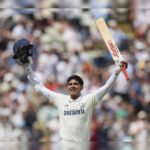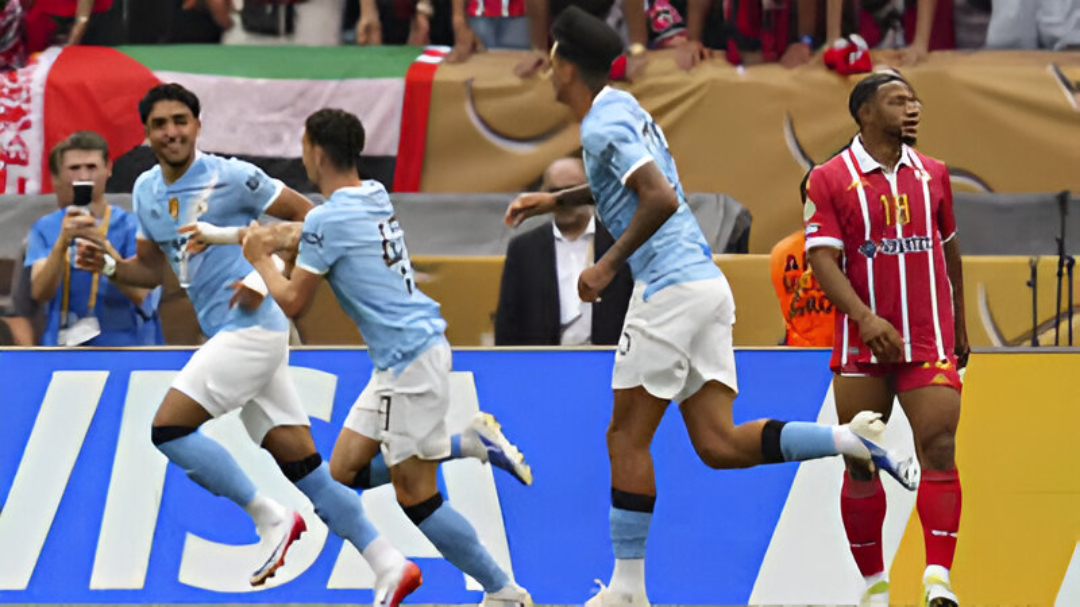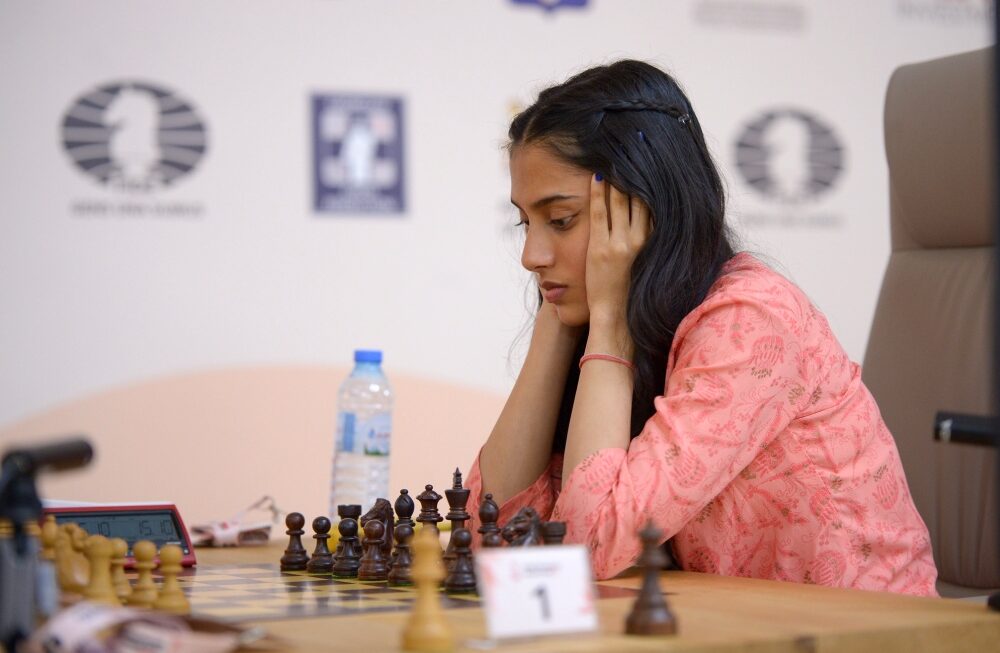FIFA Club World Cup 2025: Revolutionary Format Delivers Unprecedented Drama in Group Stage
The FIFA Club World Cup 2025 has fundamentally transformed global club football, delivering a spectacular tournament that has redefined international competition. We have witnessed an extraordinary expansion from the traditional seven-team format to a comprehensive 32-team championship, creating the most significant club tournament in football history.
Tournament Structure and Revolutionary Format
The 2025 FIFA Club World Cup represents a paradigm shift in global football competition. We have seen the implementation of a 32-team format divided into eight groups of four teams, with the top two teams in each group qualifying to the knockout stage, mirroring the FIFA World Cup format used between 1998 and 2022. This revolutionary approach has created unprecedented opportunities for clubs from all continents to compete on the world’s biggest stage.
The tournament’s strategic positioning in the United States serves multiple purposes. FIFA confirmed that the United States would host the 2025 tournament as a prelude to the 2026 FIFA World Cup, establishing a clear pathway for global football development. The tournament’s scheduling has been meticulously planned to maximize viewership and minimize conflicts with other major competitions.
Group Stage Shocking Eliminations and Major Upsets
We have witnessed the most surprising group stage eliminations in recent football history. The 2025 FIFA Club World Cup has witnessed the surprising elimination of eleven prominent teams from the group stage, including Morocco’s Wydad AC, Egypt’s Al Ahly, Spain’s Atletico Madrid, Portugal’s FC Porto. These eliminations have sent shockwaves throughout the football community and demonstrated the tournament’s unpredictable nature.
European Giants Face Unexpected Challenges
Of the 12 sides from Europe to take part in the group stage, only three (Porto, Atlético Madrid and Red Bull Salzburg) have been eliminated. This statistic reveals both the strength of European football and the exceptional nature of these upsets. We have observed that traditional powerhouses faced unprecedented challenges from emerging football nations.
The elimination of Atlético Madrid stands as perhaps the most significant upset of the group stage. The Spanish giants, with their rich history in European competition, fell short of expectations in a tournament format that demanded consistency across multiple matches. Similarly, FC Porto’s early exit highlighted the competitive balance that the expanded format has created.
African and Asian Representatives Make Their Mark
The tournament has provided a platform for clubs from Africa and Asia to showcase their talents on the global stage. While traditional powers like Al Ahly from Egypt faced elimination, other representatives from these continents have exceeded expectations, demonstrating the growing global competitiveness of club football.
Statistical Analysis of Group Stage Performance
European clubs have performed well in the competition, with teams from the UEFA region achieving the greatest win rate (61.1%) and best points-per-game. This statistical dominance underscores the continued strength of European football while highlighting the areas where other confederations can improve.
We have analyzed the performance metrics across all groups, revealing fascinating insights into tactical approaches, goal-scoring patterns, and defensive strategies. The tournament has produced an average of goals per match that exceeds traditional international competitions, indicating the attacking intent of participating clubs.
Goal Scoring Trends and Tactical Innovations
The group stage has showcased innovative tactical approaches as clubs adapted to the tournament format. We have observed teams implementing high-pressing systems, possession-based strategies, and counter-attacking styles depending on their opponents and group dynamics. The diversity of playing styles has contributed to the tournament’s entertainment value and unpredictability.
Key Matchups and Decisive Encounters
Atletico Madrid faced Botafogo on Matchday 3 of the 2025 FIFA Club World Cup in a decisive clash that determined which teams advance to the next round of the tournament. These high-stakes encounters have defined the tournament’s group stage, creating memorable moments that will be remembered for years to come.
The final matchdays of each group produced dramatic scenarios where qualification hung in the balance. We have witnessed last-minute goals, penalty shootouts, and tactical masterclasses that determined the knockout stage participants. These moments have elevated the tournament’s status and created lasting memories for football fans worldwide.
Venue Selection and Tournament Logistics
The strategic choice of venues across the United States has contributed significantly to the tournament’s success. We have seen games played in iconic stadiums that have hosted World Cup matches, creating an atmosphere befitting the tournament’s elevated status. The geographical distribution of matches has ensured optimal broadcast timing for global audiences while maintaining competitive integrity.
Qualification Controversies and Administrative Decisions
Club Leon have been removed from the Club World Cup as it and another Mexican club in the tournament, CF Pachuca, failed to meet criteria on multi-club ownership. This decision highlighted FIFA’s commitment to maintaining competitive integrity and addressing multi-club ownership concerns.
The final team to qualify were LAFC of the USA, who secured a dramatic extra-time victory in a play-in match against Club América on 31 May, replacing Club León. This late qualification added another layer of drama to the tournament’s build-up and demonstrated the competitive nature of securing participation.
Impact on Global Football Development
The expanded format has created unprecedented opportunities for clubs from developing football nations to compete against the world’s elite. We have observed tactical innovations, player development opportunities, and commercial benefits that extend far beyond the tournament itself. The exposure gained by participating clubs has immediate and long-term implications for their domestic leagues and player recruitment strategies.
Broadcasting and Commercial Success
The tournament’s strategic scheduling and venue selection have maximized global viewership and commercial revenue. We have seen record-breaking broadcast figures and unprecedented commercial partnerships that have elevated the tournament’s profile. The success of the 2025 edition establishes a strong foundation for future iterations of the competition.
Player Performance and Emerging Stars
The tournament has provided a platform for established stars to showcase their talents while creating opportunities for emerging players to announce themselves on the global stage. We have witnessed breakthrough performances from unexpected sources and confirmed the status of established superstars in high-pressure situations.
Tactical Evolution and Strategic Adaptations
The group stage has revealed fascinating tactical adaptations as coaches navigate the unique challenges of the tournament format. We have observed teams employing rotation strategies, tactical flexibility, and squad depth management to maximize their chances of progression. These tactical innovations will influence club football strategies for years to come.
Looking Ahead to the Knockout Stage
The completion of the group stage has set up an exciting knockout phase featuring the world’s premier clubs. We anticipate tactical battles, individual brilliance, and team cohesion determining the ultimate champion. The knockout format promises to deliver even more dramatic moments as the stakes continue to rise.
Tournament Legacy and Future Implications
The 2025 FIFA Club World Cup has established new standards for global club competition. We have witnessed the successful implementation of an expanded format that maintains competitive integrity while creating unprecedented opportunities for clubs worldwide. The tournament’s success will influence future FIFA competitions and reshape the global football calendar.
The lessons learned from the group stage will inform strategic decisions for participating clubs, from squad building to tactical preparations. We have observed that success in this format requires sustained excellence across multiple matches against diverse opponents, demanding unprecedented squad depth and tactical flexibility.
Conclusion: A New Era in Global Club Football
The FIFA Club World Cup 2025 group stage has exceeded all expectations, delivering a tournament that combines competitive excellence with global inclusivity. We have witnessed the emergence of a truly global club championship that respects football’s diverse traditions while creating new opportunities for growth and development.
The surprising eliminations, tactical innovations, and memorable moments have established this tournament as a cornerstone of the global football calendar. As we progress to the knockout stage, the foundation laid during the group phase promises an unforgettable conclusion to this revolutionary tournament.













